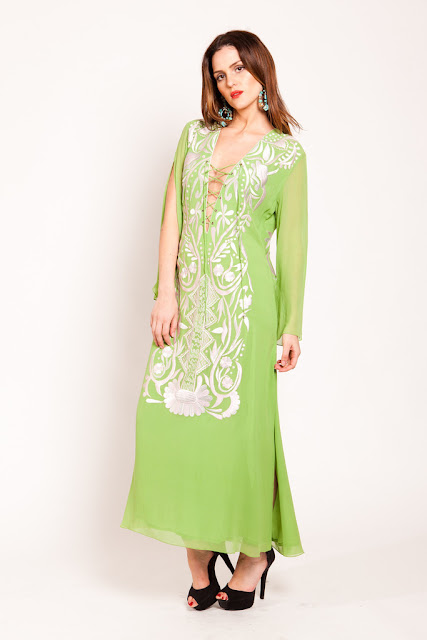Kaftans are accepted to have started from present
day Turkey, Syria and Iraq, which were known as Mesopotamia, otherwise called
the "Support of Civilization" in antiquated times. Basically, it is a
long free piece of clothing with long sleeves, more like a robe, and can be
tied at the waist with a scarf or belt. They can be produced using fleece and
cashmere as well, however cotton and silk kaftans are more normal and generally
utilized.
They can be worn by both men and ladies,
whenever of the day. They give the most happy with feeling to a lady's body.
They can be glitzy and agreeable in the meantime. The most imperative component
of a kaftan is that it looks appealing on all body shapes and sizes. On the off
chance that you are a small piece overweight, wearing it is the most ideal
approach to shroud those additional pounds.
That clarifies the kaftan more or less. How
about we discuss Silk Kaftans,
likewise called the "Ruler of filaments/materials/fabrics"? Ever
asked why it is called so? Silk is thought to be the richest fiber in the
business sector today. This is on the grounds that it can withstand
extraordinary pulling quality, or rather it is elastic, and is thought to be
the most grounded normal fiber. The characteristic protein present in the silk
is in charge of the fabric's great sponginess, along these lines making it an
agreeable fabric to wear consistently; cool in summer and warm in winter.
Because of its great permeable, it has
a decent proclivity for colors. Once colored, it is viewed as colorfast in many
conditions. It has extraordinary adaptability and the suppleness of the fabric
feels astounding on the skin.
Silk Kaftans Dresses are worn
everywhere throughout the globe. Despite the fact that they are thought to be
of Islamic beginning, they are connected with India, Russia, Southeast Asia,
and West Africa. It is the ethnic wear of a few nations all through the globe.
In West Africa it is known as the boubou,
while the North Africans wear a jellabiya, a long streaming like robe with wide
sleeves. In the Middle East and North Africa, the ladies wear an abaya, a
kaftan style robe, generally dark in shading.



No comments:
Post a Comment